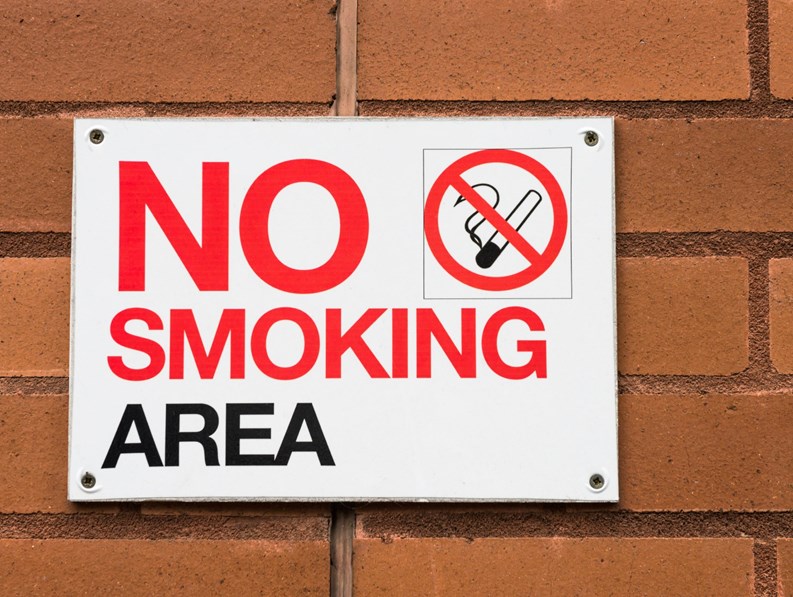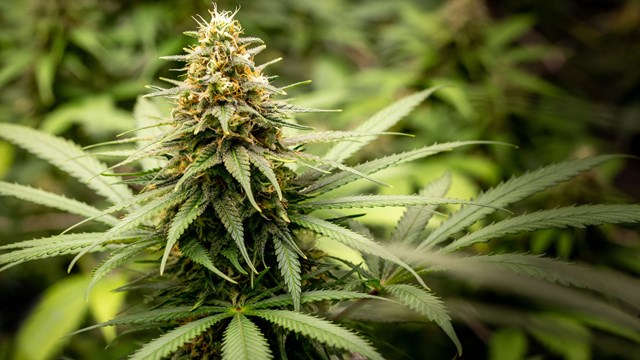In post-Bloomberg New York City, the war on smoking in the name of public health trudges on, and this time it’s coming from the federal government. In November, the U.S. Department of Housing and Urban Development announced it will be extending a smoking ban to over 940,000 public housing units across the country, including those in New York City.
While the ban only extends to federal housing, condos and co-ops are plenty familiar with smoking-related controversies, and buildings are starting to wonder whether they will follow suit, and if they should.
Smoking rules have made for passionate debate over the years. On one side you have neighbors who can’t stand the smoke that wafts into their units, and the smokers themselves, who consider their own home to be the only space left for harassment-free smoking.
Boards usually would love more than anything to stay out of the fight altogether. “Boards don’t want to have to police their residents, and I’ve not personally encountered any buildings that have banned smoking outright,” said Martin S. Kera, a partner with the law firm of Kera & Graubard in Manhattan.
A no-smoking rule can also lead to what you see in front of office buildings, with people smoking out front, and littering their butts around the entrance to the building, even when receptacles are placed strategically nearby.
The city’s administrative code prohibits smoking in common areas of multifamily buildings, but according to Phyllis Weisberg, a partner with the law firm of Montgomery McCracken Walker & Rhoads, LLP in Manhattan, most co-ops’ proprietary leases and condo bylaws have additional provisions stating that no one can permit odors to emanate beyond the confines of their own apartments.
“In some buildings, in an extreme case wherein someone is smoking like a chimney, and it’s upsetting neighbors, these provisions can come into play, and owners can go after that smoker,” said Weisberg. “There’s at least one case I’ve seen holding that second-hand smoke is a breach of the warranty of habitability, so there are some conflicts where the board must intervene and get the situation under control.” Allowing this kind of chain-smoking to continue unchecked would most likely be a breach of a board’s fiduciary duty, were the health of owners and residents at stake.
But what about a board that has done its research, and wants to proceed with an all-out smoking ban? Well, according to Weisman, there are several things it can do. “In a co-op, you’re amending the proprietary lease, which is going to have a super majority requirement,” she said. Condos may find trouble in getting a supermajority. Unit owners tend to be less engaged or interested in the finer points of building governance. Co-ops, on the other hand, may be able to bypass an all-out ban altogether by simply asking potential buyers to disclose whether or not they smoke, and declining a proprietary lease if they are so inclined.
Converting a property to non-smoking is a process that can take years, but there are smaller steps a board can enact. Some restrict smoking to owners and prohibit renters from doing so, under the assumption that renters aren’t as attached and thus are more likely to be disrespectful of the property, according to Weisberg. Yet others offer a grace period, whereby existing shareholders have a year or two to stop smoking before they can be penalized. According to StreetEasy.com, some 1,400 rentals, 100 condos and 66 co-ops are listed as being smoke-free with more and more buildings enacting a partial or total smoking ban.
In 2013, the 647-unit Zeckendorf Towers became the largest residential property in New York City and the nation, to go smoke-free. In a landmark vote, a record 83.5% of the condo unit owners voted in favor of the amendment to prohibit smoking in the common areas and in residential units. Existing residents were grandfathered in.
As a non-smoking building has a lower likelihood of health issues due to second-hand inhalation being a non-factor—not to mention lowering the risk of fires—one might be curious as to whether or not there are any insurance implications or incentives to making a property smoke-free.
Sadly, there really isn’t. At least not yet.
“Unlike with smoke alarms or sprinkler systems, which are tangible fire-prevention measures, insurance agencies really can’t ascertain whether or not people will smoke in buildings, and thus non-smoking rules on their own can’t really have an impact on minimizing a loss,” said James F. Sutton, president of the James F. Sutton Agency, an insurance broker in East Islip. “A smoking ban is a nice thought, and I would love to see something along those lines one day affect rates, but I don’t know of anyone who is giving out a discount based on non-smoking properties. That would really come down to a judgment call on behalf of the underwriter, I think. There could be a marginal credit there, but there’s no hard and fast policy.”
For more information on going smoke-free in your building, contact www.smokefreehousingny.org or www.nycsmokefree.org.
Michael Odenthal is a staff writer at The Cooperator.










4 Comments
Leave a Comment